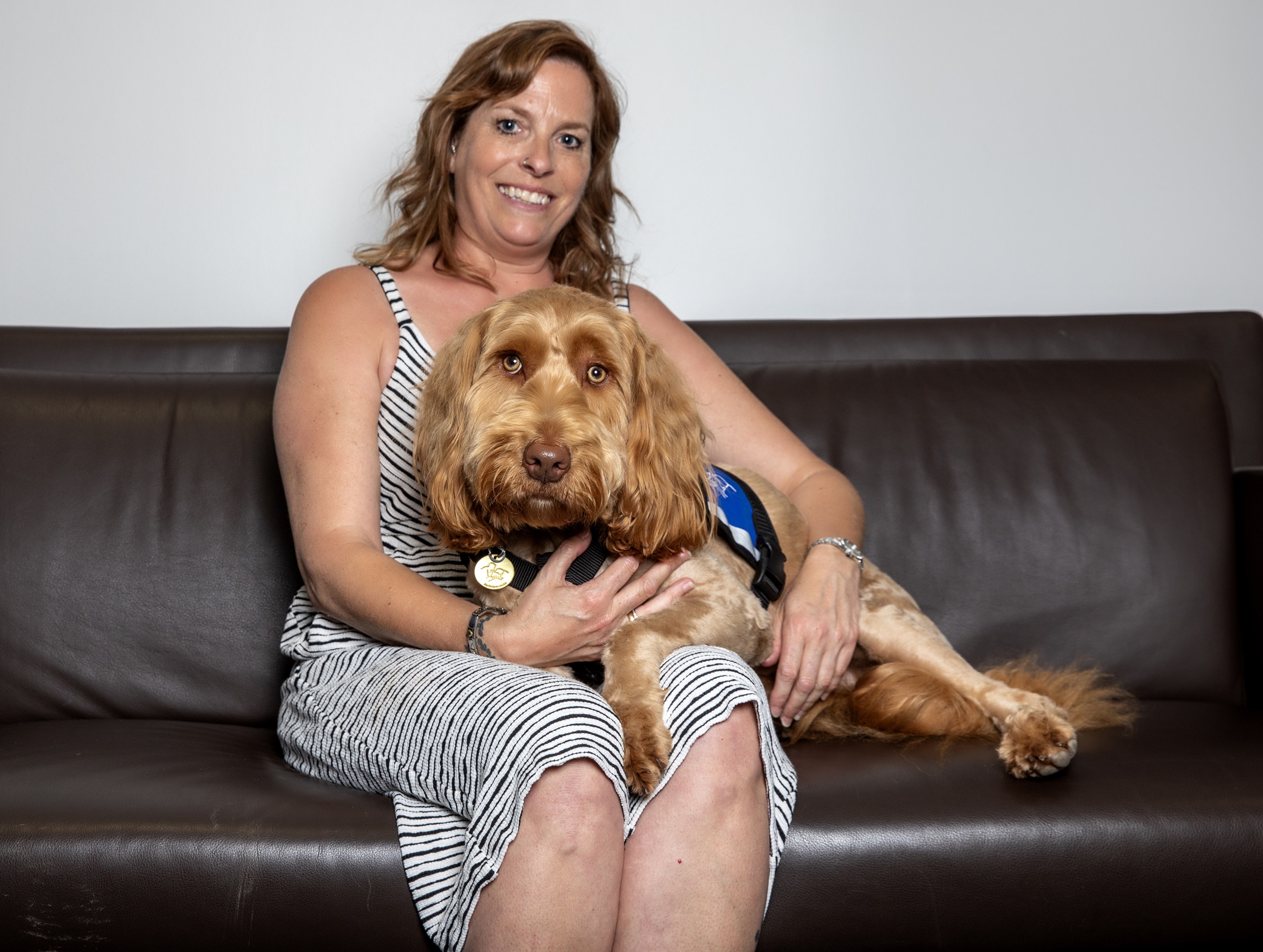
Without support dog Rolo, Heidi Robinson would be a recluse.
Heidi has been living with a range of debilitating health conditions for the past 15 years, which have also impacted heavily on her mental health.
But the adorable Labradoodle, who turns three in August, is helping her to face the world – while also supporting her to remain independent at home.
Heidi was diagnosed with fibromyalgia seven years ago, and she also has ME (chronic fatigue), a low immune system, long Covid symptoms and non-epileptic seizures.
Before becoming ill, Heidi was a busy mum to three young children, worked as a hairdresser and kept horses.
“I was really active – motorcycling, horses, you name it, I was doing it,” said the 52-year-old, who lives in Ripley, Derbyshire.
But around eight years prior to her diagnosis, the first signs of ill health struck.
She suffered a loss of balance and had trouble walking in a straight line.
While horse-riding, she thought her saddle was slipping off, and she struggled to mount her horse.
But this was the beginning of an enduring health battle.
Her GP carried out a test and they suspected Heidi had a brain tumour. She wasn’t allowed to drive home from the surgery, and her husband David had to collect her.
“I was just in shock,” said Heidi.
A few days later, as she waited for an emergency referral to hospital, she suffered speech loss and couldn’t use the left side of her body.
After NHS MRI scans proved inconclusive, a private scan revealed Heidi had damage on the neural pathways at the front and base of her brain.
“There was nothing they could do,” said Heidi.
“I had to crack on and build my strength up.”
Eventually, she was diagnosed with fibromyalgia.
But trooper Heidi was determined it was not going to beat her.
“If I let it be a problem, it was going to stop me, whereas if I thought if I fought it, it wasn’t going to take over my life,” said Heidi, who also has depression and anxiety.
However, her condition – coupled with not being able to get out of bed some days due to her ME and shortness of breath from long Covid – worsened, with medics telling her to start taking it easy.
And it took its toll on Heidi’s self-esteem: “I wasn’t going out and had lost all my confidence.
“I didn’t want to walk or drive anywhere on my own.”
After the family’s pet dog, Luna gave birth to Rolo, Heidi looked into having him trained to help her with practical tasks.

“I need him really for support,” said Heidi, who has three grandchildren.
“I thought if he could come with me, then that would make me get out and do things and go to the shop.”
She looked online and discovered Support Dogs’ disability assistance programme, from which the pair recently graduated, following a year of training.
Now Rolo picks up items Heidi drops, such as her car keys, loads and unloads the washing machine, helps Heidi to get undressed and fetches the post.
He even accompanies her to medical appointments, giving her added confidence and reassurance.
“My confidence in myself had disappeared – I just didn’t want to be around people at all,” said Heidi.
“But Rolo has helped me get back to being a bit more like my old self. He does get attention, which I now embrace. It’s brought me out of my shell.”
She added: “I think Support Dogs are amazing, and the work they do should get more credit. I’m so pleased I did it.”
To learn more about Support Dogs’ work, please visit www.supportdogs.org.uk or call 0114 2617800.

